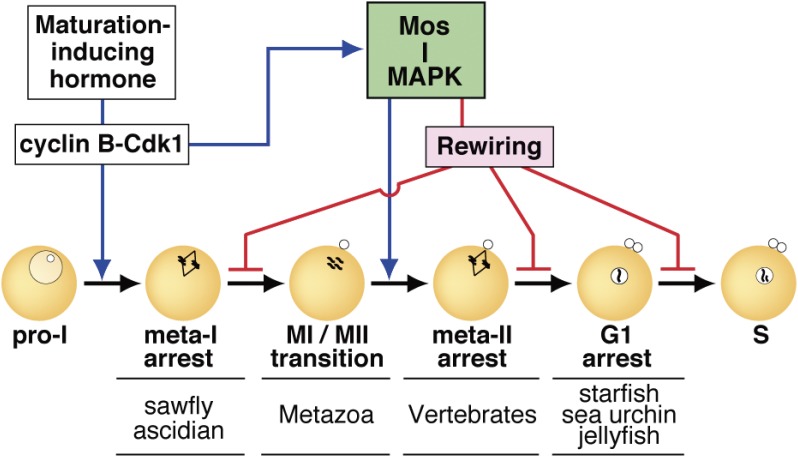Figure 7.
Mos–MAPK signaling governs meiotic cell cycle progression to accomplish the half-reduction of genomic ploidy in metazoan oocytes. At meiotic resumption, diverse hormonal signaling processes in various animal species center on activation of cyclin B-Cdk1 in all cases. Mos–MAPK is then activated downstream of cyclin B-Cdk1. Mos–MAPK positively regulates the meiosis I to II transition by avoiding S-phase and by facilitating entry into meiosis II in most metazoans (blue line). On the other hand, Mos–MAPK causes, via its downstream rewiring, a second meiotic arrest at diverse, species-specific stages (meta-I, meta-II, or G1; representative examples are indicated at each arrest) until fertilization (red lines). Thus, the conserved Mos–MAPK module is central to the production of haploid eggs for successive generations.

